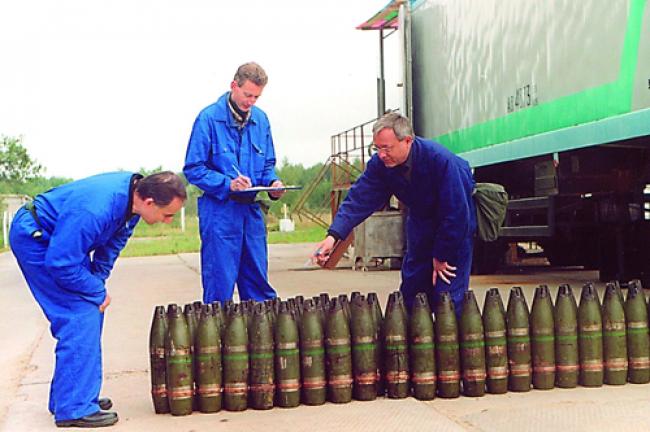“Until membership is universal and the last stockpiles of chemical weapons are destroyed, our work will not be done,” Ban said in reference to Angola, Egypt, Israel, the Democratic People’s Republic of Korea, Myanmar and South Sudan.
Ashe echoed Ban’s tribute to the victims, adding that chemical weapons “have no place in our world.”
He added that the international community’s commitment to eliminating the threat of chemical weapons strengthens one of the core missions of the UN: the promotion of peace, security and stability worldwide.
Observed annually on 29 April, the Day commemorates the date in 1997 on which the Convention entered into force. The treaty prohibits the development, production, acquisition, stockpiling, retention, transfer or use of chemical weapons by States parties.
Seeing first-hand the “horrific use” of chemical weapons in Syria in 2013, Ban called their use “a deplorable offense against humanity.”
This year’s observance comes just days after the Joint Mission of the Organization for the Prohibition of Chemical Weapons and the UN announced that 92.5 per cent of Syria’s chemical weapons programme has been either removed or destroyed.
“The multinational effort to rid Syria of its chemical weapons programme shows what can be done when the international community comes together,” Ban said.
In the past year, Syria and Somalia joined the Convention, raising its membership to 190 States.
Inspectors from the Organisation for the Prohibition of Chemical Weapons (OPCW) inventory a stockpile of 22mm chemical artillery projectiles (file photo). Credit: OPCW
